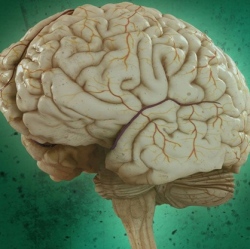
New research has suggested that there’s a single protein that determines whether someone will cope with stress, or whether they’ll be more susceptible to depression. The results challenge the way we currently treat depression, and could lead to the first preventative therapies for the mental illness.
While much research has focussed on the effects of various brain chemicals such as serotonin and dopamine on depression, for the first time, scientists from the Icahn School of Medicine in the US have found that a protein called beta-catenin (B-catenin) appears to make some people deal with stress and fend off depression better than others.
B-catenin is a protein that’s expressed throughout the brain and has been known to play many roles in the human body, including boosting cell development. Now the new study suggests that the levels of B-catenin in the nucleus accumbens (NAc) the brain’s reward and motivation centre, could be the key driver of stress and depression.
Specifically, they found that mice whose brains had lots of active B-catenin were protected against stress, while those with inactive B-catenin developed signs of depression. Interestingly, they also found that the protein was suppressed in the brain tissue of deceased humans who had suffered from depression.
